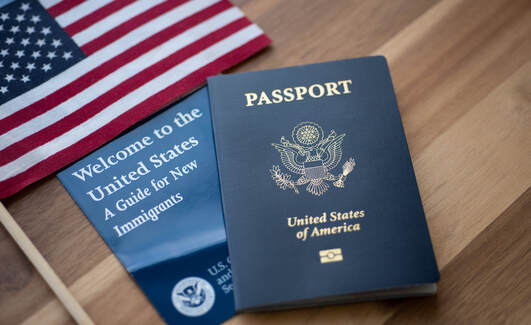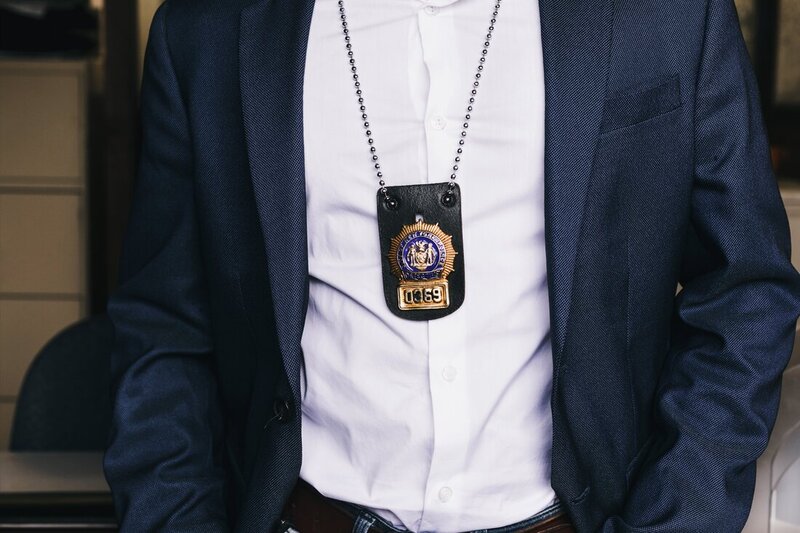 This is a question we often get as criminal defense attorneys. And it can be the most important question in a criminal case. If you are not a United States citizen and you are facing a criminal charge, your immigration status and future in the country could be on the line. This is why one of the first questions we ask our clients is this: Are you a U.S. citizen? If not, what could otherwise be a simple criminal case with minor penalties may have life-altering consequences for you and your family, including deportation or denial of renewal of your status. Clients often have misconceptions about the importance of considering their immigration status in addressing criminal charges. Common misconceptions include the following:
What types of offenses could affect my immigration status? Every case is unique, and that’s why it’s important to raise this issue with your counsel so you understand the potential consequences in your individual case. However, certain categories of offenses under immigration law can trigger negative immigration consequences, including the following:
What should I do if I am not a US citizen and I am charged with a criminal offense? First, it’s important to retain an experienced criminal defense attorney who is accustomed to representing immigrant clients and is sensitive to the issue of immigration consequences of convictions. The Supreme Court decision of Kentucky v. Padilla, 559 U.S. 356 (2010) held that it is ineffective assistance of counsel for a defense attorney not to advise a client on the immigration consequences of a plea. Second, before accepting any plea agreement, or deciding whether to go to trial or negotiate a plea, make sure you understand the consequences of the specific charge(s) you face on your status. Discussing this early on with your attorney can facilitate a plea negotiation that is focused on protecting your immigration status. Can I avoid adverse immigration consequences from my criminal case? Often, yes. While every case is different, in many cases a plea agreement can be fashioned specifically in a way to protect your immigration status. For example, a plea to an amended charge that does not trigger immigration consequences is often possible. Similarly, a deferred disposition agreement can be crafted in a way that avoids triggering immigration grounds of inadmissibility or removability. Of course, this depends on a number of factors, including the seriousness of the charged offense and any prior criminal history. This is why it’s critical to understand the exact consequences you face, discuss them with your attorney, and ensure that you know the immigration consequences before you make any case-related decisions. Are you or a loved one facing a criminal charge in state or federal court? Call us now at 703-884-2636.
0 Comments
It’s a scary moment for most. Two FBI agents in dark suits knock on your door unexpectedly. They introduce themselves and ask if they can come in and chat with you for a bit. They are probably friendly and full of smiles too. But the risk of mishandling this interaction can be serious. So what should you do? Don't Panic.First and most importantly, do not panic. Law enforcement officers, whether federal agents or local police officers, are simply doing their job, which includes interviewing potential witnesses and following up on leads. While you may be the target of their investigation, it is also possible that you are simply a witness or potential witness. Panicking will only serve to cloud your judgment and make it more difficult for you to react appropriately. Get as Much Information as You Can.While the agents or officers are there to get information from you, it is wise for you to do the same of them. Be sure to get their names, ask to see their badges to confirm their identities, and ask for their business cards because you will likely forget their names otherwise. That way if your attorney needs to follow up with them afterwards, your attorney will know who to contact. Ask them for the reason for their visit, and find out if they have a warrant. If they do, you should not do anything to obstruct their execution of the warrant. Remember that disagreements about the legality of a search warrant are resolved in court, not on the scene. Do Not Make Any Statements Without Consulting an Attorney.The investigators will likely ask you to let them in. But unless they have a warrant authorizing them to enter your home, you have no legal obligation to allow them in. Keep in mind that once you invite them inside, they have the right to look around and observe the surroundings of the area you allow them into, even without a warrant. That is because you voluntarily allowed them to do so. So the better approach is to speak with them outside of your home and to not invite them inside without a warrant. Perhaps most importantly, you should not make any statements that could potentially be used against you without first consulting with an attorney. You may not always know what types of statements may later incriminate you, especially if you’re unsure about the nature or scope of their investigation. As such, the safest option is to decline to make any statements until you have consulted your attorney, even if the agents insist that you are not the target of their investigation. You should also be firm and stand your ground on this point. Keep in mind that law enforcement officers are trained to push people into making statements, so expect pushback from the agents the moment you tell them you do not want to make any statements without consulting an attorney. But you are well within your rights to do so, and you should not cave in to any pressure to waive your Fifth Amendment right to remain silent. Do Not, Under any Circumstances, Lie to Law Enforcement. This is where many people get in trouble. They panic and get nervous, even if they know they did not do anything illegal. Or perhaps they realize that a family member or friend could be in trouble, and they decide to protect them by misleading law enforcement. That is a terrible idea. Lying to law enforcement has serious consequences and leads to steep penalties under both federal and Virginia law. Federal Law Penalizes Lying to Federal Agents.Federal law, Title 18 United States Code § 1001 makes it a serious criminal offense do any of the following in connection with a matter under investigation by any branch of the federal government:
A conviction for violating this statute is punishable by up to five years in prison, and the penalty is increased to up to eight years if the violation is related to investigations of terrorism or certain other crimes. Virginia Law Punishes Obstructing Investigations.Virginia also makes it a criminal offense to knowingly lie to law enforcement during an investigation of another person. Virginia Code § 18.2-460 classifies this offense as obstruction of justice, a crime punishable as a Class 1 misdemeanor, with a penalty range of up to twelve months in jail and/or a fine of up to $2,500.
So instead of lying to law enforcement, simply exercise your constitutional right to remain silent and your right to consult an attorney before making any statements. As soon as the agents or officers leave, contact an experienced criminal defense attorney who can advise you on whether it is in your best interest to speak with the investigators or to maintain your right to remain silent. If you have been approached by law enforcement officers, call the experienced attorneys at Elsayed Law PLLC today.  Legally possessing a firearm is a significant responsibility that requires proper training, proficiency, and safe storage. But what happens if, despite your best efforts, someone steals your gun, or you lose it? Virginia Law Requires Reporting of Lost or Stolen Firearms.In 2020, Virginia enacted Code Section 18.2-287.5 to require anyone whose forearm is lost or stolen to report the loss or theft to a local law-enforcement agency or the Department of State Police within 48 hours after discovering the loss or theft. This report will then enable the law enforcement agency to report this information to the National Crime Information Center, which is maintained by the FBI. The purpose of this statute is to enable law enforcement to quickly track and attempt to recover stolen firearms before they end up in the wrong hands, as well as to be able to identify any firearms used in the commission of a crime. Does this law apply to antique firearms?If a firearm qualifies as an "antique firearm" as defined in Virginia Code Section 18.2-308.2:2, then Virginia law does not require its owner to comply with the 48-hour reporting requirement for lost or stolen firearms. Virginia law provides a very specific definition of "antique firearms", so it is important to double check whether your firearm qualifies legally as an antique. In any case, while the mandatory reporting requirement does not apply to antique guns, it may nonetheless be wise to report any lost or stolen antique firearms to local law enforcement or Virginia State Police. In any case, most insurance companies require proof of such a report before responding to any insurance claim for a stolen firearm. What is the penalty for failing to report a stolen or lost gun in Virginia?If a gun owner fails to report a stolen or lost gun to law enforcement within 48 hours, Virginia law imposes a civil penalty of $250. The attorney for the county, city, or town where the violation occurred has the authority by statute to enforce this penalty and collect the civil fine, which must be paid into the local treasury. Do I face criminal or civil liability if my gun is stolen or lost and I comply with the reporting requirement?Virginia Code Section 18.2-287.5 explicitly provides lawful gun owners with immunity against criminal or civil liability for "any damages from acts or omissions resulting from the loss or theft," so long as they comply with the reporting requirement in good faith.
However, this immunity does not apply to anyone who makes a false report to law enforcement regarding a firearm. For example, a gun owner who falsely reports his gun stolen when in fact he authorized a third party to use it may potentially be held both criminally and civilly liable for the actions of the third party in using the firearm. In addition, under Virginia Code Section 18.2-461, making a false report to police is a Class 1 misdemeanor punishable by up to twelve months in jail and/or a fine of up to $2,500. |


 RSS Feed
RSS Feed
